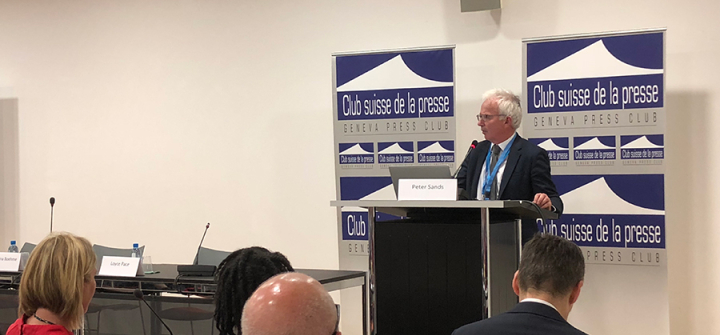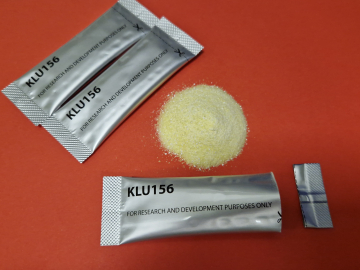The Local Path to Global Health Security
GENEVA – Global Fund executive director Peter Sands set an ominous challenge before experts at a Monday side event of the World Health Assembly: “The number of infectious disease outbreaks is going up,” Sands said. “This is not a problem that is going away as mankind gets bigger and richer. This is a problem that seems to be increasing in magnitude.”
The challenge is to recognize the cost of epidemics and prepare locally in advance, he told an audience at the “Getting Local with Global Health Security” event sponsored by Management Sciences for Health, the Global Health Council and others. The costs in human lives and in dollars should drive better preparedness, Sands argued, citing an estimated $500 billion per year in economic and human costs.
“This is a phenomenon with a significant economic impact,” he said. Drawing on his experience in the financial industry in Hong Kong, Sands noted the 2003 SARS outbreak cut tourism there by two-thirds 2 months afterwards.
“We live in a world where fear travels extremely fast,” he said. The result is massive changes in personal behavior resulting in impacts that can shake national economies.
Preparing in advance is more effective than trying to respond afterwards. And the key to preparation, explained Tom Frieden, president and CEO of Resolve to Save Lives, is for each country to know its weaknesses and fix them.
Frieden then displayed a slide covered in green, yellow and red squares that chart countries’ preparedness status across the 76 indicators of the Joint External Evaluation. The evaluation is meant to provide a gauge of how countries are doing in meeting targets that are in the 2005 International Health Regulations.
While acknowledging the JEE’s intimidating detail—it looks like a block by block heat map of a sprawling metropolis—he drilled down into the chart and surfaced advances in preparedness that Sierra Leone achieved in just 6 months in 2016. Tanzania scored similar wins from 2016 to 2017, Frieden said.
“This is the kind of focus that we are going to need if we’re going to make progress against epidemics,” he said.
Diane Gashumba, Minister of Health of Rwanda, found JEE to be a helpful exercise. Essential to the process is being transparent and open about your country’s weaknesses. If that’s not embraced from the start, the process is destined to fail, she said.
Each country has to adapt global health security work to its own specific situation, Gashumba said. “Sometimes it is very difficult to make priorities especially when you have lot of health and social issues,” she said. “In my country, Rwanda, the strategy we adopted is to focus everything on the ground because the issues are on the ground but also the solutions are on the ground.”
Sands noted the issue with JEE is that more countries have done the assessment of their capacity than “have actually closed the gaps.” The Global Fund, he noted, too, has room for improvement. It can do a better job making sure that the hundreds of millions of dollars supporting AIDS, TB and malaria efforts can do double duty by more broadly helping countries prepare for future epidemics. “I think we have a bit too much siloed language and thinking,” he said.
Rüdiger Krech, director of Health Systems and Innovation at WHO, said the preparedness for epidemics is within any country’s reach. “First of all, it is a political choice,” Krech said. “By and large know what to do. It’s not that we can’t afford it. We can afford it. That is why it’s a political choice.”
The challenge is to persuade government leaders preparedness is worth the price tag.
Ed Note: See the latest news from #WHA71 here.
Want to share a #WHA71 tip or a story idea? Want to connect with GHN editor-in-chief Brian Simpson in Geneva? Please be in touch.
Join the tens of thousands of subscribers who rely on Global Health NOW summaries and exclusive articles for the latest public health news. Sign up for our free weekday enewsletter, and please share the link with friends and colleagues: Subscribe to GHN
The Global Fund’s Peter Sands speaking at a #WHA71 side event in Geneva on May 22, 2018. (Image by Brian W. Simpson)





